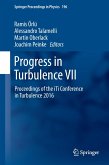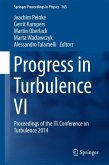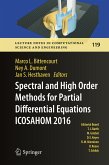This volume is devoted to the study of the Navier-Stokes equations, providing a comprehensive reference for a range of applications: from advanced undergraduate students to engineers and professional mathematicians involved in research on fluid mechanics, dynamical systems, and mathematical modeling. Equipped with only a basic knowledge of calculus, functional analysis, and partial differential equations, the reader is introduced to the concept and applications of the Navier-Stokes equations through a series of fully self-contained chapters. Including lively illustrations that complement and elucidate the text, and a collection of exercises at the end of each chapter, this book is an indispensable, accessible, classroom-tested tool for teaching and understanding the Navier-Stokes equations.
Incompressible Navier-Stokes equations describe the dynamic motion (flow) of incompressible fluid, the unknowns being the velocity and pressure as functions of location (space) and time variables. A solution to these equations predicts the behavior of the fluid, assuming knowledge of its initial and boundary states. These equations are one of the most important models of mathematical physics: although they have been a subject of vivid research for more than 150 years, there are still many open problems due to the nature of nonlinearity present in the equations. The nonlinear convective term present in the equations leads to phenomena such as eddy flows and turbulence. In particular, the question of solution regularity for three-dimensional problem was appointed by Clay Institute as one of the Millennium Problems, the key problems in modern mathematics. The problem remains challenging and fascinating for mathematicians, and the applications of the Navier-Stokes equations range from aerodynamics (drag and lift forces), to the design of watercraft and hydroelectric power plants, to medical applications such as modeling the flow of blood in the circulatory system.
Incompressible Navier-Stokes equations describe the dynamic motion (flow) of incompressible fluid, the unknowns being the velocity and pressure as functions of location (space) and time variables. A solution to these equations predicts the behavior of the fluid, assuming knowledge of its initial and boundary states. These equations are one of the most important models of mathematical physics: although they have been a subject of vivid research for more than 150 years, there are still many open problems due to the nature of nonlinearity present in the equations. The nonlinear convective term present in the equations leads to phenomena such as eddy flows and turbulence. In particular, the question of solution regularity for three-dimensional problem was appointed by Clay Institute as one of the Millennium Problems, the key problems in modern mathematics. The problem remains challenging and fascinating for mathematicians, and the applications of the Navier-Stokes equations range from aerodynamics (drag and lift forces), to the design of watercraft and hydroelectric power plants, to medical applications such as modeling the flow of blood in the circulatory system.
"This book, which was written with the intent of being useful to researchers willing to learn about the mathematics as well as graduate students and researchers studying the dynamical systems approach to the Navier-Strokes equations, can also be used as a textbook in a wide range of graduate classes in mathematical fluid mechanics... ." (Luigi Carlo Berselli, Mathematical Reviews, June,2017)
"This book is devoted to the mathematical theory of the NSE for incompressible fluids. The basic, classical, and non-classical tools are included, and part of the material comes from original articles published by the authors. ... each chapter is concluded with a brief discussion of the literature and essential remarks concerning, among others, the priority results. ... This book will be definitely useful for those who already know the subject and who are interested in mathematical aspects of hydrodynamics." (Andrzej Icha, Pure and Applied Geophysics, Vol. 174, 2017)
"This is a monograph devoted to a theory of Navier-Stokes system with a clear stress on applications to specific modificationsand extensions of the Navier-Stokes equations ... . The presentation is as simple as possible, exercises, examples, comments and bibliographical notes are valuable complements of the theory. ... The book will be certainly useful for researchers as well as students and post-graduate students in mathematics, physics and engineering ... ." (Piotr Biler, zbMATH 1352.35001, 2017)
"The Navier-Stokes equations, which describe the movement of fluids, are an important source of topics for scientific research, technological development and innovation. ... written in a comprehensive and easy-to-read style for undergraduate students as well as engineers, mathematicians, and physicists interested in studying fluid motion from a systems approach and mathematical modeling of processes and phenomena. ... a useful reference book for all those who wish to approach the Navier-Stokes equations from a very formal and rigorous modern approach." (Melio Sáenz, ResearchGate, researchgate.net, December, 2016)
"This book is devoted to the mathematical theory of the NSE for incompressible fluids. The basic, classical, and non-classical tools are included, and part of the material comes from original articles published by the authors. ... each chapter is concluded with a brief discussion of the literature and essential remarks concerning, among others, the priority results. ... This book will be definitely useful for those who already know the subject and who are interested in mathematical aspects of hydrodynamics." (Andrzej Icha, Pure and Applied Geophysics, Vol. 174, 2017)
"This is a monograph devoted to a theory of Navier-Stokes system with a clear stress on applications to specific modificationsand extensions of the Navier-Stokes equations ... . The presentation is as simple as possible, exercises, examples, comments and bibliographical notes are valuable complements of the theory. ... The book will be certainly useful for researchers as well as students and post-graduate students in mathematics, physics and engineering ... ." (Piotr Biler, zbMATH 1352.35001, 2017)
"The Navier-Stokes equations, which describe the movement of fluids, are an important source of topics for scientific research, technological development and innovation. ... written in a comprehensive and easy-to-read style for undergraduate students as well as engineers, mathematicians, and physicists interested in studying fluid motion from a systems approach and mathematical modeling of processes and phenomena. ... a useful reference book for all those who wish to approach the Navier-Stokes equations from a very formal and rigorous modern approach." (Melio Sáenz, ResearchGate, researchgate.net, December, 2016)








